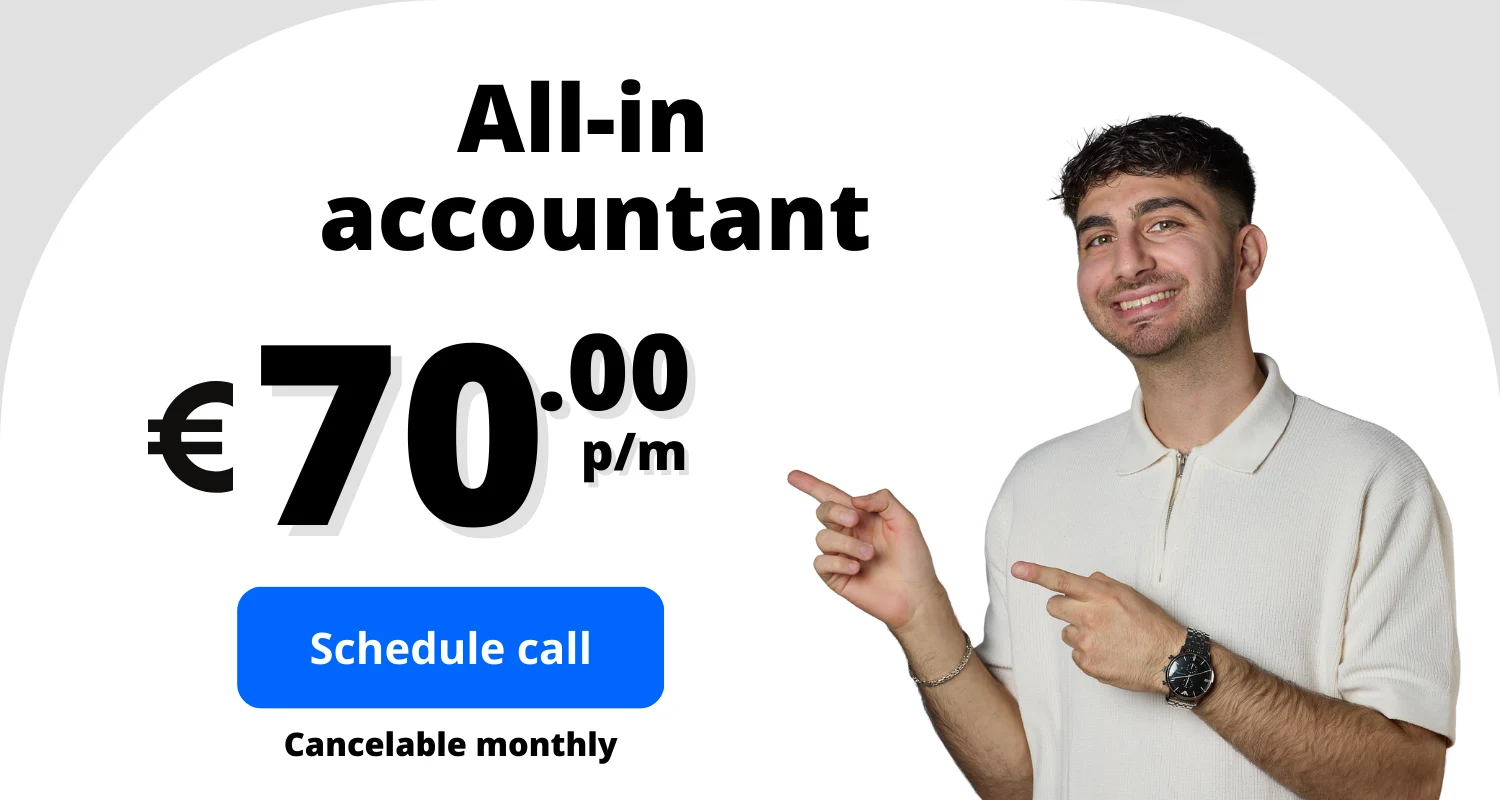Difference between company and private car
The biggest difference is in the tax rules. If you put the car in your business, it belongs to your business assets. All costs, from fuel to maintenance, are then deductible from your profit. If you also use the car privately, you will have to pay an additional tax.
If you keep the car privately, you cannot deduct separate car expenses. However, you may charge a fixed mileage allowance for each business kilometre. This way, you still benefit from business use for tax purposes, without an additional taxable benefit.
You can choose whether to keep the car business or private, as long as you do not drive more than 500 kilometres per year privately with a business car. Instead, do you drive mostly privately? Then the car must compulsorily remain private.
Company car
If you put the car in your company's name, you may include all costs in your accounts. On the other hand, your records will become more extensive and you may have to pay additional taxable income.
Deductible car expenses
You can deduct almost all expenses, such as:
- Fuel
- Maintenance and repair
- Insurance
- Road tax
- Parking charges
- Depreciation
- Tolls, vignettes and washouts
If you are liable for VAT, you may also deduct the VAT on these expenses. You will then have to make an adjustment for private use in your VAT return.
Deducting purchase costs
You write off the purchase price of a car over several years. You divide the cost over five years, for example. You deduct this annual depreciation from your profit. Any interest on a loan or lease contract is also deductible.
Note that ordinary passenger cars are not eligible for investment deductions. Only electric cars with certain features or special vehicles (such as taxis) are sometimes covered by an environmental investment scheme.
Addition
Do you also use a business car privately and drive more than 500 kilometres per year privately? Then you must addition apply. For most cars, this is 22% of the list value. For fully electric cars, a lower percentage over part of the catalogue value applies temporarily. Do you drive less than 500 kilometres privately per year? Then you avoid additional taxable benefit, but you must be able to prove this with a comprehensive trip registration.
Electric car advantage
For electric cars, you will pay less additional tax liability in 2025 (17% over €30,000). You also benefit from a discount on motor vehicle tax and pay no BPM when buying. From 2026, some benefits disappear, so it may pay off to switch in 2025.
Youngtimer scheme
Do you drive a car that is 15 years old or older? Then you can use the youngtimer scheme. You then pay an additional 35% on the daily value instead of 22% on the catalogue value. This can be advantageous for cars that are worth much less than when they were new.
Business driving with your private car
Do you use a private car for your business? Then you do not have to pay an additional taxable benefit. Instead, you may pay a kilometre allowance of €0.23 per business kilometre from your profit.
Mileage allowance
This allowance applies to all business trips: to customers, suppliers, appointments and even to your permanent workplace (e.g. your workshop or office). It does not allow you to deduct separate costs, as the €0.23 per kilometre covers everything: fuel, maintenance, insurance and depreciation.
Mileage tracking
To use the mileage allowance, you must have a trip registration track. Note per trip:
- Date
- Start and end location
- Number of kilometres
- Purpose of the ride
There are several apps that track this automatically or manually. Make sure your records are correct, as you will need to be able to prove this when audited.
Table of advantages and disadvantages
The table below shows the main differences between a company car and using your private car for business purposes.
Feature | Company car | Business use of private car |
Deductible expenses | All car expenses deductible | Only €0.23 per business kilometre |
Addition | Yes, for > 500 km private use | No |
VAT to be reclaimed | Yes, partly (with correction for private use) | Not at purchase, partly at maintenance |
Administration | More work, trip registration required | Only track business trips |
Investment deduction | Not for ordinary cars | Not applicable |
Electrical advantages | Yes, including lower additional tax rate | Only via MRB and BPM, not addition |
Calculating car expenses: business or private?
Unsure which is more advantageous? Then use a calculation tool to calculate both situations. This will show you exactly what effect the addition, mileage allowance and expenses will have on your profit and tax.
Business lease or buy
Whether you buy or lease a car as a self-employed person also makes a difference for tax purposes. At business leasing the car is usually in your company's name. You can then deduct all costs, including interest and lease costs, just as with buying. With private lease, the car remains private and you can only deduct €0.23 per business kilometre. That's similar to how it works with a private car.
Are you hesitating between buying and leasing? Then consider things like the term of your contract, monthly charges and the flexibility you need. Leasing gives less hassle in terms of maintenance, but can be more expensive in the long run. If you buy the car on a business basis, you will have to take depreciation and possibly additional taxes into account.
Motorbike on business
You can also put a motorbike on your business. You can then deduct the purchase, depreciation, motorbike clothing, helmet and maintenance costs. Unlike with passenger cars, you are often eligible for small-scale investment deduction.
Additional tax on motorbikes
There is no fixed addition rate for motorbikes. You add the private use to the total cost. For example, if you drive 20% privately, you have to add 20% of the motorbike costs to your profit. You don't have to keep a trip log for this, but it helps to substantiate your numbers.
Do you use your private motorbike for business? Then the kilometre allowance of €0.23 per business kilometre also applies here.






